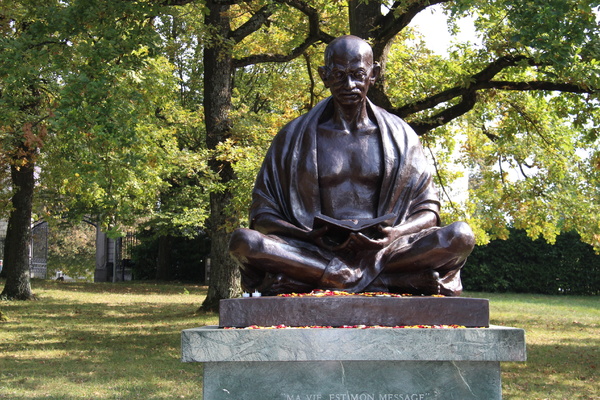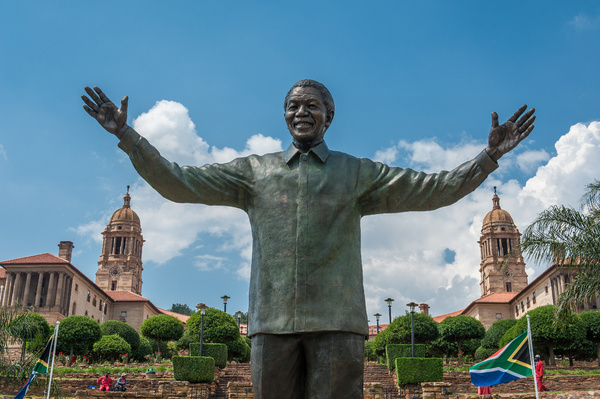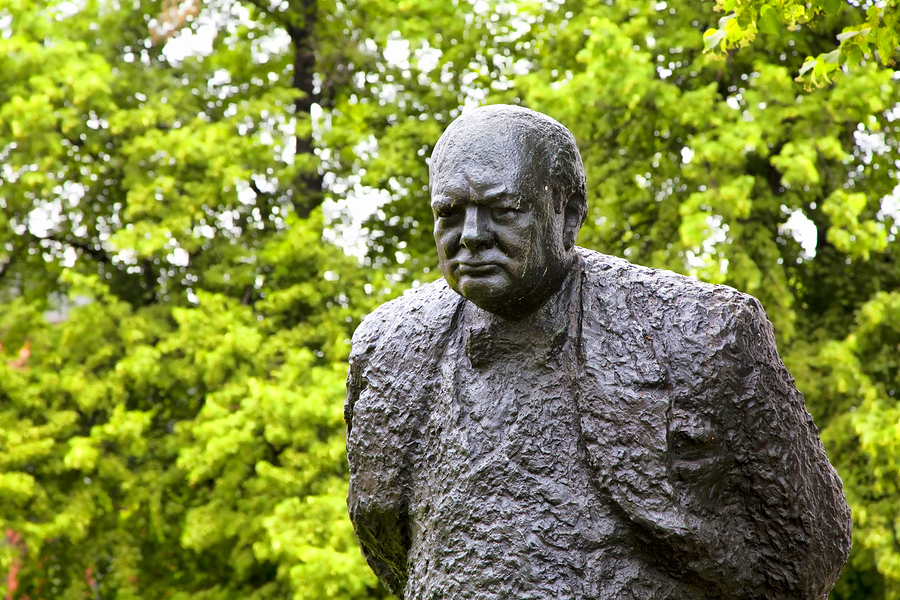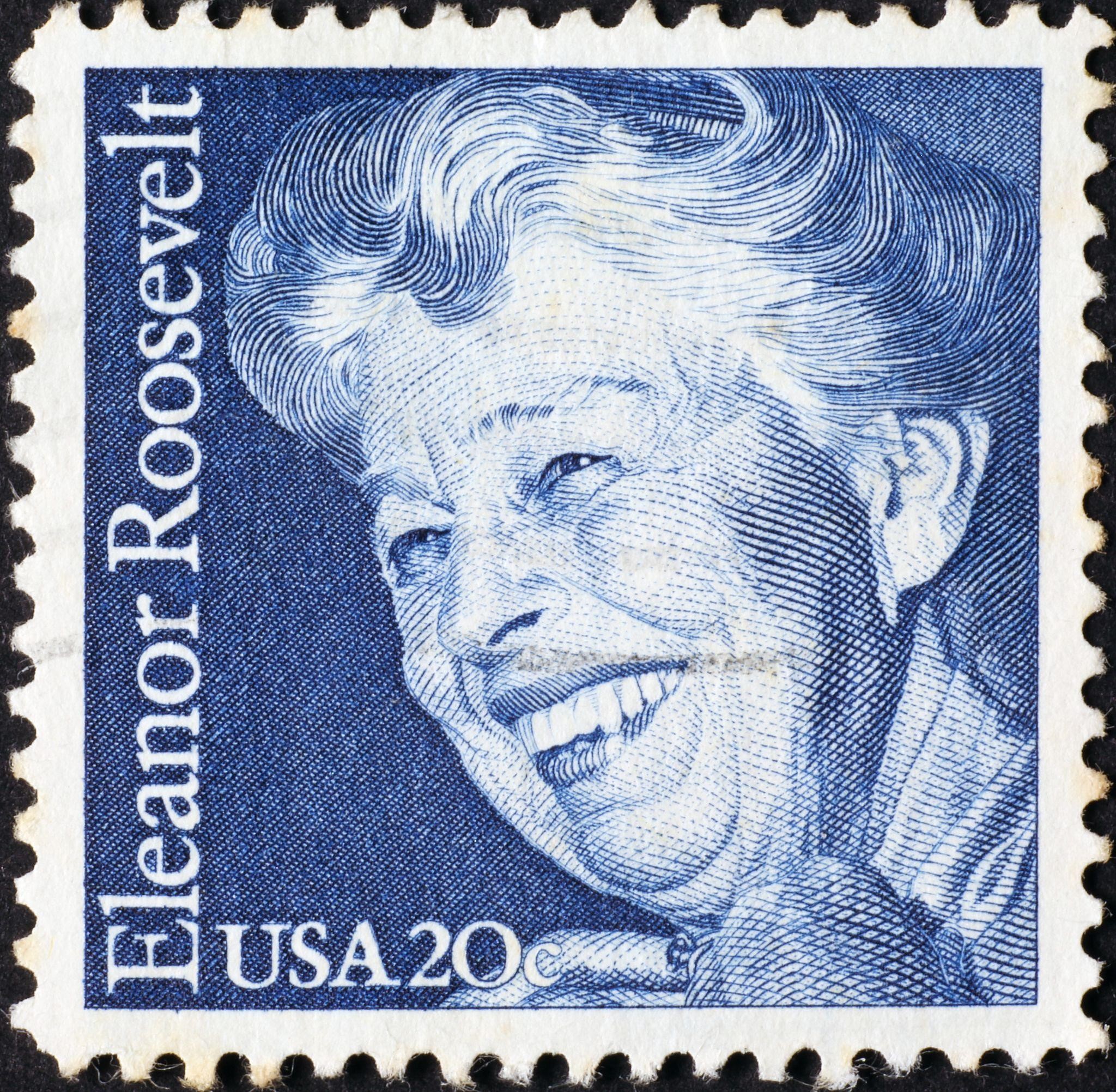THE WORLD’S #1 EXECUTIVE COACHING AND BUSINESS COACHING BLOG SINCE 2017.
History’s 5 Best Leaders + More Great Leaders from Business
April 30, 2025 | Category: Blog, Intelligent Leadership | Last updated on: May 3, 2025

Although history often rewards authoritarian leadership, the leaders we tend to respect and consider inspirational today often fit the mold of intelligent leadership in many ways.
Famous world leaders such as Nelson Mandela, MLK, Mahatma Gandhi, and Abraham Lincoln cared about their people and knew how to talk to and inspire followers.
Throughout history, great leaders emerged organically or otherwise, leaving their marks in the annals of time through a combination of leadership skills and character.
Although history’s greatest leaders all possessed unique leadership skill combinations that worked as well as they did in their specific chronological and geographical frames, some common themes emerge.
Who is the Greatest Leader of All Time?
The question, “Who is the greatest leader of all time?” has intrigued historians, scholars, and business leaders for centuries. The answer is not straightforward, as it varies based on individual perspectives, cultural contexts, and the criteria used to define greatness.
Some may argue that the world’s greatest leaders are those who led with courage and conviction during times of war, while others may highlight those who brought about significant social change or those who innovated and transformed industries.
When I consider the greatest leaders, I reflect on the qualities that make someone truly exceptional. Leadership is not solely about achieving success; it’s about the journey, the impact on others, and the legacy left behind.
Criteria for Greatness
To determine what makes a leader truly great, we need to examine several key traits and values. In my book, “The Intelligent Leader,” I explore the inner and outer core of leadership. These are the essential dimensions that, when mastered, make a leader of great impact.
Character and Integrity
Great leaders have unwavering character and integrity. They stick to their values and principles even when the decision is tough. Leaders like Mahatma Gandhi and Abraham Lincoln exemplified this, leading their followers with honesty and moral courage.
Vision and Strategy
A great leader has a clear vision for the future and the strategic thinking to make it happen. Jeff Bezos, for example, has disrupted the retail industry with his long-term view and innovative strategies at Amazon.
Empathy and Emotional Intelligence
Leaders who understand and connect with their followers’ emotions can inspire and motivate like no one else. Martin Luther King Jr.’s empathetic approach and communication skills were key to the civil rights movement.
Resilience and Perseverance
Great leadership requires the ability to withstand tough times and persevere in the face of adversity. Nelson Mandela’s commitment to justice and equality despite decades of imprisonment shows incredible resilience.
Impact and Legacy
Ultimately, a leader’s greatness is measured by the impact they have on their organization, community, or the world. The greatest leaders leave a legacy that continues to inspire and influence long after they are gone.
By exploring these criteria and examining historical and contemporary examples of leadership, we can better understand what it takes to be an effective leader.
In the sections that follow, let’s explore the lives and leadership styles of some of the most renowned leaders in history and the modern business world, learning from their journeys and the legacies they have left behind.
Historical Examples of the Most Famous World Leaders
From the sweeping reach of the Roman Empire to the global influence of the British Empire, the arc of history has been defined by great world leaders who emerged in moments of conflict, change, and transformation.
Whether as president of the United States or a prime minister during wartime, these inspiring leaders rose to lead with purpose during some of the most turbulent periods in modern history.
Leading Through Chaos
Many gained prominence by igniting local revolutionary movements that reshaped their nations or guiding their people through the chaos of Western and Central Europe.
Some, like those who challenged fascist political party ideologies, stood firm in the face of tyranny, refusing to compromise their vision of freedom and human dignity.
Tough times—such as the Middle Ages, the Cold War, or the Hundred Years War—were eras in which world-famous leaders emerged to help the global community make a great leap forward.
Defending Values Across Centuries
Even centuries earlier, other famous world leaders—from Holy Roman Emperors to heroes of the Revolutionary War—left their mark by uniting divided societies and defending their values against overwhelming odds.
Their ability to inspire, lead with character, and redirect history continues to shape the course of the modern world.
A great leader changes and shapes the world.
Since the dawn of time, history has generously delivered world-changing leaders. From the perspective of leadership coaching and intelligent leadership, however, some of these leaders carry more significance than others.
1. Mahatma Gandhi
Fighting the British colonial rule, Mahatma Gandhi is the founding father of nonviolent protest and a staunch pursuer of peace. He embodied a complex leadership style, espousing many of the principles of Intelligent leadership.
Gandhi led through persuasion and emotional intelligence, becoming the supreme example through word and deed. He also:
- Valued lifelong learning
- Treated others well
- Modeled discipline to followers
- Had a strategy
- Modeled the change he wanted to effect in the world
Gandhi connected with his followers through a peaceful mindset built upon simplicity. He is relatable, inspiring, and triumphant over the ego.
2. Martin Luther King Jr.
An iconic representative of the civil rights movement, Martin Luther King Jr. embodies intelligent leadership in many ways.
As I have pointed out in my business coaching books and posts, empathy is one of the core traits of intelligent leaders, and it was one of MLK’s leadership strengths in addition to outstanding communication.
MLK inspired followers everywhere through his:
- Intelligence
- Respect
- Creativity
- Focus
- Determination
- Willingness to learn
His public speaking and communication skills were outstanding. He focused on positive language and avoided accusing others or inciting violence. He used the right language to connect with his audiences and had a narrow focus to get his message through effectively and efficiently.
3. Abraham Lincoln
The 16th President of the United States, Abraham Lincoln, turned out to be more than just a president. His short tenure, spanning from 1861 until his assassination in 1865, saw him:
- Lead a divided nation in and out of civil war
- Abolish slavery
- Preserve the union
- Strengthen the federal government
- Boost the US economy through modernization
Lincoln’s leadership had a bigger impact on the history of the US than that of any other president. Honest Abe was the quintessential intelligent leader of his era, mastering skills like:
- Empathy
- Good communication
- Outstanding social skills
- The ability to persuade gently using emotional intelligence
- Stirring emotion
- Showing vulnerability by taking responsibility for mistakes
It takes a great person and leader to admit to a rival or friend that they were right and you were wrong. That is what Abraham Lincoln did, on record, in a letter to Ulysses S. Grant.
4. Nelson Mandela
Like other leaders on this list, Nelson Mandela refused to adapt to the world, choosing instead to shape it to his ideals. By pursuing this approach, he brought monumental change to the world, a change that continues to unfold and shape our lives to this day.
Nelson Mandela is a larger-than-life icon.
What leadership skills made Mandela the larger-than-life leader he was?
- Passion. Mandela understood the possible consequences of his fight, but he never wavered.
- Humility. Mandela was never a flashy leader, but he won over the masses worldwide regardless.
- Empathy
- The willingness to learn
- Excellent communication skills
- Patience
- Endurance
- Courage
Related reading: Legacy of Leadership: Nelson Mandela’s Timeless Authenticity
5. Winston Churchill
Great Britain’s World War II Prime Minister Winston Churchill was a master communicator and motivator, comparable to other notable military leaders such as Alexander the Great and Napoleon Bonaparte. He set his sights high and accomplished his goals through grit, determination, and courage.
Few world leaders in history could communicate their thoughts and goals to their followers as concisely as Churchill could.
What made Churchill exceptional wasn’t just his wartime strategy or his stirring speeches, but the depth of his leadership character, rooted in the very traits we associate with intelligent, resilient leaders today:
- Passion
- Courage
- The ability and willingness to learn from his mistakes
- Perseverance
- A staunch belief in his followers
- Humor
Interestingly, Winston Churchill was not a natural speaker. He developed his communication skills with determination and intent, earning his place in history as someone who continues to inspire people facing adversity to this day.
Related Reading: Winston Churchill Leadership Style: Pioneering Authentic Leadership for Modern Executives
Great Business Leaders in History
While inspiring leaders like Gandhi, Mandela, and King led societal revolutions, others have shaped the modern world through innovation, enterprise, and vision.
These business leaders redefined industries, built iconic brands, and modelled what intelligent leadership looks like in action—from boardrooms to global marketplaces.
Steve Jobs
Steve Jobs, co-founder of Apple Inc., was an inspirational leader who revolutionized multiple industries, including personal computing, animated movies, music, phones, tablet computing, and digital publishing.
Steve and I worked together in 2010, about a year before he passed away. His relentless pursuit of perfection and innovation continues to influence the tech industry.
While his leadership style was often considered demanding, he was always open to learning and growth. Jobs’ key leadership qualities include:
- Visionary Thinking: Seeing and creating the future of technology.
- Attention to Detail: Insisting on high standards and perfect execution.
- Innovation: Continuously pushing the boundaries of what’s possible.
Hap Klopp
Founder of The North Face, Hap Klopp’s entrepreneurial spirit and vision for high-quality, durable outdoor gear revolutionized the industry. His passion for innovation and strategic planning was crucial to The North Face’s success. Klopp’s key leadership qualities include:
- Entrepreneurial Spirit: Driving innovation and growth.
- Product Excellence: Committing to high standards in product development.
- Strategic Planning: Ensuring long-term success through careful planning.
Roger Enrico
Roger Enrico, the former CEO of PepsiCo, is known for his transformational leadership and innovative strategies, which helped propel the company to new heights.
When we worked together, I witnessed firsthand his ability to inspire and empower his team was instrumental in driving PepsiCo’s growth and market dominance. Enrico’s key leadership qualities include:
- Transformational Leadership: Leading change and innovation.
- Team Empowerment: Inspiring and enabling his team to perform at their best.
- Strategic Vision: Guiding the company towards long-term success.
Jeff Bezos
Jeff Bezos, the founder and CEO of Amazon, transformed a simple online bookstore into the largest online retailer in the world. His leadership is characterized by a relentless focus on customer needs, a long-term vision, and an unwavering commitment to innovation.
Bezos once stated, “If you’re going to take a long-term orientation, you have to be willing to stay ‘heads down’ and ignore a wide array of critics.”
This mindset has been instrumental in Amazon’s phenomenal growth and success. Bezos’ key leadership qualities include:
- Conviction: Staying committed to his long-term vision despite criticism.
- Optimism: Believing in the eventual success of his endeavors.
- Customer Focus: Prioritizing customer satisfaction above all.
Daniel Reed
One of my former executive coaching clients and the Chairman of the Board of UnitedLex, Dan Reed has a singular focus of empowering clients to achieve their own unique “art of the possible” in legal.
As a former general counsel and CFO of public and private equity-backed companies, Dan identified the unexplored opportunity to transform the legal industry.
He saw the power of delivering holistic legal services through a revolutionary technology platform, a captive law firm, and consulting company delivery, coupled with inspired levels of training and professional development.
Dan was CEO of the company from its founding until 2023, when he took on the role of Chairman of the Board to intensify his focus on co-creating and expanding solutions, as well as client advocacy.
Reed’s key leadership qualities include:
- Entrepreneurial Spirit: Driving innovation and growth.
- Intelligence: Utilizing his intellect to drive business success.
- Focus on Leadership, Talent, and Culture: Recognizing these elements as the ultimate “leading indicators” driving long-term success.
Tim Herbert
Tim Herbert, another client, is the founder, Chairman, and CEO of Inspire Medical Systems and has served as President and Chief Executive Officer since 2007 and as Chair of the Board since May 2024.
Tim is one of the few CEOs who has successfully navigated leading a company through multiple phases—start-up, regulatory, going public, and now leading Inspire as a multi-billion-dollar market cap company. Herbert’s key leadership qualities include:
- Drive and Passion: The “Little Engine that Could” mentality.
- Optimism: Promoting a positive outlook and encouraging others.
- Heart and Soul: Leading with extraordinary intellect combined with deep care and concern for his people.
These business leaders, through their unique approaches and unwavering commitment to their principles, have set remarkable examples of what it means to lead with integrity, vision, and resilience.
They embody the core traits of intelligent leadership, demonstrating that true leadership is about more than just achieving success—it’s about making a lasting impact and inspiring others to reach their full potential.
Denise Morrison
As former CEO of Campbell Soup Company, Denise Morrison exemplified balanced and ethical leadership. She believed in living a balanced life and making decisions grounded in ethics and integrity, ensuring Campbell’s thrived financially while maintaining its reputation as a trusted brand. Morrison’s key leadership qualities include:
- Balanced Life: Valuing work-life balance for herself and her employees.
- Ethical Principles: Making decisions grounded in ethics and integrity.
Oprah Winfrey
Founder of OWN, the Oprah Winfrey Network, Oprah Winfrey is renowned for her ability to inspire and teach. Her leadership is grounded in empowering others and fostering personal growth.
Winfrey’s journey from a challenging childhood to becoming one of the most influential media figures in history highlights her resilience and dedication. Winfrey’s key leadership qualities include:
- Teaching: Using her platform to educate and uplift others.
- Inspiration: Motivating her audience to strive for personal growth.
Sir Richard Branson
Sir Richard Branson, founder of the Virgin Group, is celebrated for his adventurous spirit in business ventures. Part of his purpose statement reads, “To have fun in [my] journey through life and learn from [my] mistakes.”
This philosophy has enabled him to create a diverse and successful conglomerate that spans various industries, from music to aviation. Branson’s key leadership qualities include:
- Fun: Ensuring that the journey of business is enjoyable.
- Learning from Mistakes: Viewing failures as opportunities for growth.
Yasir Al-Rumayyan
Yasir Al-Rumayyan is a Saudi businessman who serves as the governor of the Public Investment Fund (PIF), the sovereign wealth fund of the Kingdom of Saudi Arabia.
He is also the chairman of English football club Newcastle United and the state-owned petroleum company Saudi Aramco. In my coaching work with His Excellency and his senior executive team at PIF in 2019 and 2020, he demonstrated extraordinary leadership. Al-Rumayyan’s key leadership qualities include:
- Visionary: Seeing and executing Saudi’s Vision 2030.
- Resilience and Perseverance: Maintaining a powerful presence, being a tough negotiator, and pursuing what is possible without compromise.
- Relentless Accountability: Proudly holding himself and his teams accountable.
Amanda Steinberg
Amanda Steinberg, founder of DailyWorth.com, has used her intelligence, charisma, and optimism to help women worldwide cultivate their self-worth and net worth. Her strategic vision and deep understanding of her audience make DailyWorth a leading platform for financial advice and empowerment. Steinberg’s key leadership qualities include:
- Intelligence: Utilizing her intellect to drive business success.
- Charisma: Engaging and inspiring her audience.
- Optimism: Promoting a positive outlook and encouraging others.
Harib Al Kitani
Harib Al Kitani is the former CEO and President of Oman Liquefied Natural Gas (LNG). From 2012 to 2022, he was instrumental in strengthening Oman LNG’s position in key markets, such as Korea and Japan.
He also initiated the company’s cargo swapping and diversion with various global partners, creating better value for shareholders. In my coaching work with Harib and his team, he demonstrated the following traits. Al Kitani’s key leadership qualities include:
- Deep Respect for People: This respect is at the core of Harib’s leadership.
- Instincts and Gut Feel: Possessing phenomenal instincts sharpened from experience.
- Follow-Through: Having an eye for the finishing line and ensuring that goals are met.
Leaders in Social Change and Advocacy
Beyond government and business, some of the most influential world leaders emerged through social advocacy and humanitarian work. Their leadership didn’t just change policies—it changed lives. These inspiring leaders became global symbols of compassion, courage, and unshakable commitment to justice.
Eleanor Roosevelt
As First Lady of the United States, Eleanor Roosevelt was a formidable advocate for civil rights and social justice. Her contributions to global human rights were so significant that they have been compared to those of Nobel Peace Prize laureates.
Her work with the United Nations and her role in drafting the Universal Declaration of Human Rights underscore her lasting impact on human rights globally. She championed causes related to human welfare, working tirelessly to improve the lives of marginalized populations.
- Compassion: Her deep empathy and concern for others were evident in her advocacy work.
- Advocacy for human rights: She used her platform to promote civil rights and social justice.
- Effective communication: She was a powerful speaker and writer, effectively conveying her messages of equality and justice.
- Resilience: Despite facing criticism and resistance, she remained steadfast in her efforts.
- Courage: She boldly addressed controversial issues and took strong stances against injustice.
Related Reading: Unlocking the Leadership Secrets of Eleanor Roosevelt
Mother Teresa
Founder of the Missionaries of Charity, Mother Teresa dedicated her life to serving the poorest of the poor. Her humanitarian work and deep empathy made her a global symbol of compassion and charity. She inspired many through her selfless actions and commitment to alleviating suffering.
- Compassion: Her deep empathy for the suffering of others drove her life’s work.
- Selflessness: She lived a life dedicated to serving others without seeking personal gain.
- Dedication: Her unwavering commitment to her mission was evident in her lifelong service.
- Empathy: She had a profound understanding of the needs and pain of those she served.
- Humility: Despite her global recognition, she remained humble and focused on her work.
Related Reading: Mother Teresa: A Timeless Model for Authentic Leadership
Ruth Bader Ginsburg
As a Supreme Court Justice, Ruth Bader Ginsburg fought tirelessly for gender equality and civil rights. Her legal work and dissents have left an indelible mark on American jurisprudence and continue to inspire future generations. She was known for her sharp legal mind and her dedication to justice.
- Determination: Her relentless pursuit of gender equality and civil rights defined her career.
- Legal acumen: Her profound understanding of the law helped shape significant legal precedents.
- Resilience: She faced and overcame numerous obstacles throughout her career.
- Advocacy for gender equality: She championed women’s rights and fought against gender discrimination.
- Effective communication: Her eloquent and persuasive legal arguments were highly influential.
The Qualities That Define Great Leaders
What sustains a leader is not just strategy, but substance—the depth of character and the strength of commitment that endure beyond any single achievement. The greatest leaders are defined by inward strength, consistent values, and a disciplined drive to grow daily.
“Great leaders commit to becoming more capable, committed, and connected today than they were yesterday.”
—Law #7, 50 Laws of Intelligent Leadership – John Mattone
These are not optional qualities—they are essential. They are anchored in moral conviction, a teachable spirit, and the courage to lead with vulnerability, even in the most challenging moments. Quiet yet powerful, these traits shape cultures, deepen trust, and spark meaningful transformation.
Core Traits of Exceptional Leaders
In the short term, it’s tempting to prioritize performance over principles, or results over relationships. But the leaders who truly elevate others—and leave lasting legacies—are those who lead from the inside out. They build trust through words or actions and consistently align with who they are and how they lead.
These are the traits that quietly, yet powerfully, define the leadership that transforms companies, inspires movements, and changes lives:
- Vulnerability and Courage: It takes courage to lead, but even more to admit you don’t have all the answers. The most admired leaders are those who embrace their humanity. They ask for help, own their missteps, and show up authentically—even when it’s uncomfortable. Vulnerability doesn’t weaken leadership; it strengthens trust.
- Self-Awareness: Legendary leaders know who they are, what drives them, and where they fall short. They make time for reflection and understand how their actions impact others. This awareness is the foundation of adaptability and emotional control, crucial in high-stakes environments.
- Consistency and Discipline: Greatness isn’t found in grand gestures—it’s built in the quiet discipline of daily habits. Consistency in words, actions, and decisions earns respect. Great leaders operate with intentionality, whether it’s showing up prepared, holding a difficult conversation, or living out a personal standard.
- Teachability: Even at the top, great leaders stay coachable. They actively seek feedback, not just when things go wrong, but as a regular part of growth. They listen with humility and apply what they learn. The best leaders aren’t finished products—they’re committed students of the game.
- Moral Resolve: In times of pressure, the right decision isn’t always easy. Great leaders are guided by principle, not popularity. They make value-based decisions, even when doing so comes at a cost. This moral resolve earns deep, enduring respect.
- Presence: Presence is more than charisma. It’s the ability to engage with people, make decisions, and be in the moment fully. Great leaders listen with focus, speak with intention, and carry themselves in a way that commands attention, without demanding it.
- Service-Driven Mindset: A desire to serve is at the core of extraordinary leadership. Whether it’s empowering a team, mentoring the next generation, or creating a culture of belonging, the most impactful leaders put people first. They lead to lift others.
True leadership is never about impressing others. It’s about making a lasting impact on people, teams, and the world. It’s measured not just by outcomes, but by the kind of person a leader becomes—and how they help others rise in the process.
Intelligent Leadership Philosophy
My Intelligent Leadership philosophy integrates these core traits into a comprehensive framework that emphasizes both inner and outer dimensions of leadership. It is about developing the inner core—character, values, positive beliefs, emotions, and self-concept—and the outer core, including leadership competencies, behaviors, and skills.
In Intelligent Leadership, I detail how aligning these inner and outer elements leads to true leadership maturity. This alignment is crucial for sustainable success and personal fulfillment as a leader. For example, a leader with strong ethical values (inner core) and excellent communication skills (outer core) can build a trustworthy and effective leadership presence.
Character and Values
At the heart of Intelligent Leadership is the emphasis on character and values.
These elements are the foundation upon which all other leadership qualities are built. Leaders who exhibit strong character and uphold their values inspire trust and respect from their followers.
Traits like honesty, humility, and courage drive a leader’s decisions and actions.
Abraham Lincoln’s commitment to justice and equality, Gandhi’s dedication to nonviolence, and Mandela’s pursuit of freedom and human rights are powerful examples of how character and values shape impactful leadership.
Continuous Improvement
Continuous improvement and self-reflection are crucial for leadership growth. In Talent Leadership, I emphasize the importance of lifelong learning and the continuous pursuit of personal and professional development.
Leaders must regularly evaluate their performance, seek feedback, and identify areas for improvement. Here are some strategies to embrace continuous improvement:
- Set Personal Goals: Identify specific areas where you want to improve and set measurable goals.
- Stay Informed: Keep up with industry trends and advancements.
- Seek Feedback: Regularly ask your team, peers, and mentors for feedback. Use this feedback constructively.
- Reflect on Experiences: Take time to reflect on your successes and failures. Learn from both and apply these lessons to future situations.
- Invest in Learning: Continuously seek out learning opportunities, whether through books, courses, or seminars.
Executive Coaching and Its Benefits
Executive coaching is a powerful tool for aspiring leaders. It provides personalized guidance and support, helping leaders develop their skills and reach their full potential. In 50 Laws of Intelligent Leadership, I outline the transformative impact of executive coaching. Here’s how it can benefit you:
- Personalized Development: Coaching addresses your unique challenges and goals, providing tailored strategies for improvement.
- Enhanced Self-Awareness: Coaches help you gain deeper insights into your strengths and areas for growth.
- Improved Performance: Coaching equips you with the skills and confidence to perform at your best.
- Career Advancement: Coaching can accelerate your career progression by developing your leadership abilities.
For more information on how executive coaching can help you, visit our Executive Coaching services page.
Intelligent Leadership® Online Academy (ILOA)
To support your leadership journey, I highly recommend joining the Intelligent Leadership® Online Academy (ILOA). This comprehensive training program offers a range of courses designed to help you master the principles of Intelligent Leadership and achieve your full potential. By participating in ILOA, you will:
- Gain In-Depth Knowledge: Access extensive resources and expert instruction on leadership development.
- Develop Practical Skills: Engage in practical exercises and real-world applications of leadership concepts.
- Receive Personalized Support: Benefit from coaching and mentorship to guide your progress.
For more information and to join the ILOA, visit Intelligent Leadership® Online Academy
Conclusion: The Journey to Becoming One of the Best Leaders
In summary, the journey to becoming a great leader involves understanding and applying the core traits of exceptional leadership.
Committing to continuous improvement, seeking executive coaching, and engaging in lifelong learning can unlock your full potential and make a lasting impact. Embrace the principles of Intelligent Leadership and embark on your path to becoming one of the best leaders of our time.
Schedule Your Free Discovery Session today, and take the first step toward becoming a leader who transforms lives, inspires others, and defines what greatness truly means in your world.
FAQ
Who are considered the greatest leaders of all time?
Leaders like Mahatma Gandhi, Abraham Lincoln, Nelson Mandela, Winston Churchill, and Martin Luther King Jr. are often named among the greatest for their vision, courage, and lasting impact on history.
What are examples of good leaders in history?
Historical examples include U.S. President Abraham Lincoln, British Prime Minister Winston Churchill, and civil rights leader Martin Luther King Jr. Each demonstrated empathy, strategy, and resilience in shaping their nations.
Who is the best leader in the world today?
While views vary, today’s admired world leaders often embody transparency, innovation, and emotional intelligence—traits modeled by figures like Oprah Winfrey and Jeff Bezos in the business world.
Why is Winston Churchill considered a great leader?
Churchill is remembered as a bold prime minister who guided Britain through World War II with powerful speeches, unyielding determination, and belief in the British people.
What makes someone a good leader?
Great leaders in history shared traits such as vision, emotional intelligence, integrity, and perseverance. These qualities enabled them to inspire change and unite people during crisis.
Can business leaders be as influential as political leaders?
Yes. Influential business figures like Steve Jobs, Jeff Bezos, and Denise Morrison have redefined industries and inspired millions through innovation, culture-building, and purpose-driven transformative leadership.
Who are some famous world leaders known for social impact?
Leaders such as Eleanor Roosevelt, Mother Teresa, and Ruth Bader Ginsburg are celebrated for advocating human rights, compassion, and ethical governance.














